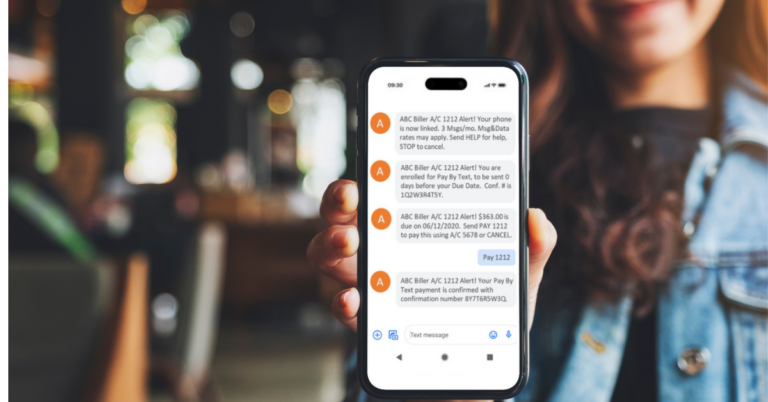The holiday season is already here, and there is much speculation about how this year’s events will affect the traditional economic impact of this time of year. Here are the payment trends we expect for:
Retail:
You’ve probably noticed that retail stores have been advertising their Black Friday sales way before Black Friday. The growing trend of early shopping has continued year over year, however this year specifically consumers are especially feeling the pressure of inflation and product availability. In fact, retail sales alone are expected to rise between 6% and 8% over 2021 to between $942.6 billion and $960.4 billion.
During the last few years, we saw an extraordinary growth in digital sales as it became the new norm for consumers during the pandemic. However, this holiday season, it’s expected that many consumers will shift back to in person shopping and traditional shopping experiences. Interestingly enough, 46% of consumers are starting their holiday shopping sooner than normal this year.
E-commerce:
Predictably, you can expect consumers to be making more payments online vs. in person for what they need. Last year, online sales grew by 8.6%. Whereas this holiday season will beat that number with an increase between 10% and 12% to between $262.8 billion and $267.6 billion.
Some of the optimism around e-commerce for the holiday season can be attributed to rising prices pushing e-commerce retailers to offer more discount codes in order to attract budget conscious shoppers. In fact, 70% of shoppers are considering online payment plans and financing options as a result of inflation.
Personalized Omnichannel Experience
Customers are expecting more personalized, omnichannel experiences. Businesses are also more prepared, improving or investing more in services like curbside pickup and expedited delivery. Companies can offer more personalized service by offering tailored offers and messaging. The opportunity to do more is clear, only 33% of consumers believe that companies do a good job of creating relevant experiences for them. (e.g., failing to recognize recent purchasers as existing customers or sending irrelevant offers).
With the talk of recession and inflation being so prevalent during this holiday season, shopping for value will be a major trend. Meaning that consumers will be looking for retailers that are offering discounts, as well as seamless payment options including digital wallets, financing, and payment plans.
Fraud
Every year, criminals take advantage of the increase in payment activity during the holiday season, and this year will be no different. This year, online shoppers are a bigger mark. Only 32% of U.S. shoppers plan to shop in-person for Black Friday, which will result in a 17% increase in 2022 online Black Friday shopping from 2021. Consumers can protect themselves by not clicking links in emails, opening attachments from retailers (which may be fraudulent and contain malware), avoiding pop-ups that contain spyware, and steering clear of e-skimmers. E-skimmers can install code on retail websites to gather data when consumers check out, and that can be avoided by using third-party payments providers such as PayPal, Venmo, or Amazon. Financial institutions can help their customers avoid fraud by using robust data analytics to better profile their customers or members’ payment habits, so fraud is easier to discern.
Popularity of Installment Payments
As mentioned previously, Buy Now Pay Later programs will become more popular this holiday season—the projected number of users is expected to hit 59.3 billion in 2022. It’s a polarizing offering as critics believe these programs encourage people who are already in financial difficulties to take on more debt. However, the data shows that the income demographic most likely to use BNPL is $50,000-$74,999. Whatever the stance, it’s clear that this feature is becoming more important to consumers. In fact, a survey from Affirm confirmed that 56% of consumers were looking to use BNPL to fund their holiday shopping.
Vehicle Purchases
Between the months of November and December, dealership site traffic increases by 25%. Event’s like Black Friday and Year-End Sales, which are meant to get rid of older inventory, encourage shoppers to take advantage of this time of year. However, expectations have lowered for 2022 due to the impact of COVID on supply chains and the Ukraine War. Cox Automotive forecasters lowered their expectations for 2022 U.S. auto sales to 13.7 million new cars and trucks, down 9% from 15 million in 2021. For context, that’s down almost 20% from 17.1 million pre-COVID in 2019. Whether the volume is high or not as projected, with holiday spending on cars, financial institutions have the opportunity to provide a great experience beyond a competitive interest rate. Loan payers should have the option to pay their loans how they want to pay, whether that’s Apple Pay, ACH, or Debit and know immediately when their payment is posted. Financial institutions should have a modern EBPP solution that offers real-time integration with any core and online banking systems, making payments easy and fast.
The holidays are a great time to show appreciation to accountholders. Skip-a-payment is a helpful option that financial institutions and billers can offer during the holidays. Read more in Skip-a-Pay for the Holidays.
Alacriti’s Orbipay EBPP is a customizable electronic billing and payments solution for businesses and financial institutions of all sizes. Skip-a-pay is just one of several Orbipay EBPP features available to help you provide a great payment experience. For more information, please contact us at info@alacriti.com.




